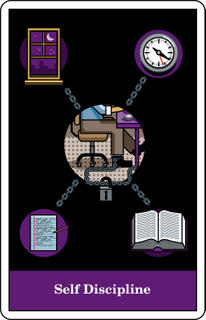 Peter Clark needs to be commended for Fifty Writing Tools, his excellent collection of writing tips, from the Poynter Institute:
Peter Clark needs to be commended for Fifty Writing Tools, his excellent collection of writing tips, from the Poynter Institute:"At times, it helps to think of writing as carpentry. That way, writers and editors can work from a plan and use tools stored on their workbench. You can borrow a writing tool at any time. And here's a secret: Unlike hammers, chisels, and rakes, writing tools never have to be returned. They can be cleaned, sharpened, and passed on."
Here are the tools:
1. Begin sentences with subjects and verbs, and branch to the right
2. Use strong verbs
3. Beware of adverbs
4. Any word next to a period draws attention
5. Observe word territory
6. Play with words
7. Dig for the concrete and specific
8. Seek original images
9. Prefer simple to technical
10. Recognize your story's roots
11. Back off or show off
12. Control the pace
13. Show and tell: the ladder of abstraction
14. Use interesting names
15. Reveal character traits
16. Put odd and interesting things next to each other
17. The number of elements matters
18. Internal cliffhangers keep them reading
19. Tune your voice *
20. Take advantage of narrative opportunities
21. Learn how quotes differ from dialogue
22. Get ready: always be prepared to tell the big story
23. Place gold coins along the path
24. Name the big parts
25. Use repetition to pull the story together
26. Fear not the long sentence
27. Riff on the creative language of others
28. Write cinematically: turn your notebook into a camera
29. Report for scenes and place them in sequence
30. Write endings to lock the box
31. Draw parallel lines, then cut across them
32. Let it flow
33. Turn procrastination into rehearsal
34. Cut big, then small
35. Use puctuation to control pace and space
36. Write a mission statement for your story
37. Break long projects into parts, and long stories into chapters
38. Polish your jewels
39. Use active verbs -- but don't dismiss the passive
40. Use "the broken line" to mix narrative and analysis
41. Read for both form and content
42. Vary the length of paragraphs
43. Limit self-criticism at the beginning, and turn it loose during the revision
44. Save your "scraps" to use later
45. Foreshadow climactic events
46. The story's engine is the question it answers for your reader
47. Take interest in all the crafts that support your work
48. Create an editing support group
49. Learn from criticism
50. Map the writing process to focus your story
Via Lifehack
Keep in touch! Sign up to get updates and occasional emails from me.
2 comments:
Thank you so much Dave! I had read Poynter's column about three months ago but never bookmarked it. Unfortunately I couldn't remember the title so searching on Google and Technorati for "writing tips" warranted unexpected results.
Now I am back in business!
My pleasure Daniel!
Post a Comment